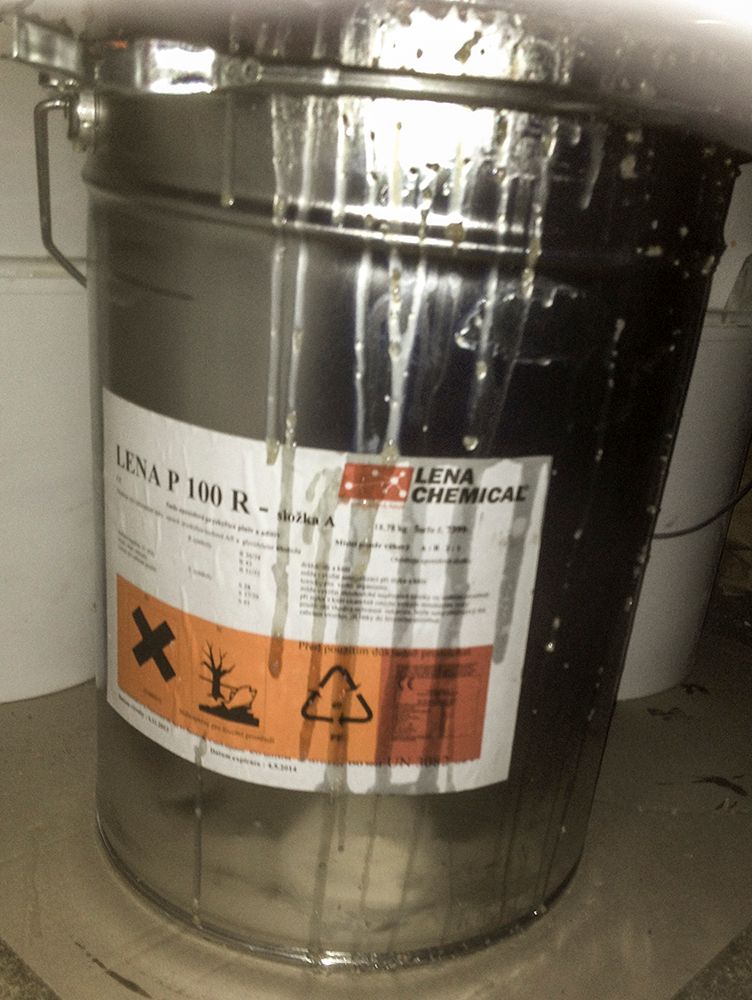The next day was even worse. Now it even began in the hallway. Stronger, stinging and with an alarming touch of serious hazard to it. Once again I tried to find the source, but now I realised it wasn’t just my flat but the whole complex. The ventilation system seemed to be where it came from so I figured the garage underneath was the place – unless someone has a meth lab in one of the apartments above. I grabbed my running shoes and went outside into the fresh air and ran down to the far side of the building complex where the garage entrance is situated. When the doors are open you can see the 100 metre deep garage opening up wide, extending underneath all the flats.
It turned out to be three guys painting the floor of the garage in the part just underneath my flat. On my right hand was a huge pile of buckets, plastics and loads of scraps from the previous floor. It all reeked with the same stingy toxicity. I had to sneak closer to get a photo. Here’s one chemical they use, and what’s most probably give of the fumes:
Turns out this is an epoxy resin foundation primer: http://lenachemical.com/lenachemical/data/mlen/Lena.P100R.pdf
Also turns out the fumes of this primer is not really healthy at all, including respiratory irritation, asthma and sensitisation to anaphylaxis allergy. Recommendations say that ventilations ought to be used, but I could see none, nor could I see any respiratory protective equipment on the guys walking around applying it.
Another thing is that these buckets are standing outside right next to the wall of the building and according to the chemical description it’s prone to exothermic reactions if left mixed in larger quantities – and indeed, the bucket was oozing grey smoke, bubbling and the metal rim was hot, but just enough not to burn my hand. Here’s some info from http://www.azom.com/article.aspx?ArticleID=1097#_Exotherms:
“This (“exothermic reaction”) normally happens only in bulk mixes, as mixed resin applied to a job is usually in a thin film (e.g. coating, glue line, laminate layer, filler layer, etc) from which heat readily escapes. Causes of exotherm are usually a combination of the following circumstances:
• Mixing a large volume of resin / hardener and not transferring to a tray with a large surface area.
• Not using the mixed materials quickly enough, particularly if it is a ‘fast’ resin / hardener system (gel time 5-20 mins).”
I seriously doubt this is according to safety standards.
So I finally found out what it was and I have now open all the windows, all the doors and have to enjoy the chilly autumn air in order to prevent my flat from becoming an epoxy fume reservoir.
And that’s how you apply toxicology to real life.



